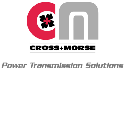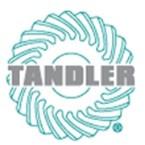Spider Couplings
Spider couplings are a type of shock absorbing coupling, often also known as jaw couplings. They feature two metallic hubs and an element insert, commonly known as a spider. The spider and two hubs fit together by means of a jaw from each hub alternating with spider lobes. Torque transmission is produced by the spider element whilst in compression. The spider elastomer can be constructed from various materials. Differing levels of hardness allow a spider coupling to be customized to best fit the needs of specific applications. Therefore, different spider couplings will enable vibration to be dampened, degrees of misalignment to be handled, as well as operation within specific temperature ranges and different chemical environments. Spider couplings are available in straight tooth jaw and curved jaw versions. As a general purpose power transmission coupling, spider couplings are suitable for most motion control applications. For precision tasks, zero backlash curved spider couplings are most ideal. However, straight jaw spider couplings are more suitable for constant motion applications. Although limited in terms of shaft misalignment capabilities, spider couplings have impressive damping qualities, shock absorption and torque transmission which makes them ideal for a wide variety of applications.
-
Cross and Morse
View company profileHere at Cross and Morse, we are established manufacturers and distributors of a wide range of mechanical transmission products. Our extensive manufacturing capability gives us the ability to turn, gear cut, grind, keyway, drill and tap, broach, mill, hone, shot blast, induction harden teeth and chemical black. Expert engineering and technical support is available our drawing office use the latest Autodesk® Inventor™ software . At Cross and Morse, we utilise modern CNC equipment to maintain our high quality of service. We hold a large stock of Power Transmission components which gives us a unique position of being both a stockist and a manufacturer.
-
Tandler Precision Ltd
View company profileTandler Precision Ltd has a wide range of spiral bevel gearboxes on offer. They have proven their versatility and value repeatedly over the last 50 years. Their spiral bevel gearboxes are of the highest quality.
Every surface on a spiral bevel gearbox is matched for universal mounting capabilities and the power density is among the highest in the industry. A Tandler Precision spiral bevel gearbox is extremely precise with low backlash and low transmission error.


